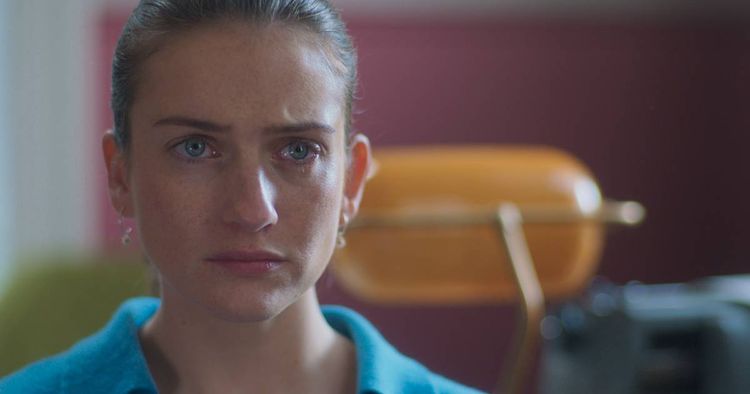The Vanishing Triangle review: Tasteless thriller based on missing ...

Virgin Media’s tasteless new thriller gets its excuses in early. A disclaimer at the start of The Vanishing Triangle (Virgin Media One, Monday, 9pm) claims the series was “inspired by true events but is a work of fiction” and “not intended to be an accurate portrayal of real people or events”.
The “real events” referred to are, of course, the disappearances around Leinster of a number of young women in the 1990s. The Vanishing Triangle isn’t specifically based on any of those missing person cases. But it shamelessly upcycles them into a gaudy whodunnit that is simultaneously dull, ludicrous and crass.
It is 1995 – we know this because The Cranberries are on the soundtrack – and a young woman named Amy Reynolds (Gráinne Good) has missed her last bus home from Dublin. She is offered a lift and dropped off outside a lonely public telephone box. As she is calling home in the rain, another car pulls up, and she gets in. She is never seen again.
The Vanishing Triangle aired last year in the United States on the SundanceNow streaming channel. Viewers in the US may have lapped it up as a cheesy guilty pleasure that landed like True Detective on a micro-budget. But for Irish viewers, it’s hard to filter out the real-life suffering from which it so blatantly takes inspiration.
The script gets a few things right – and a lot wrong. When Amy Reynolds disappears the day before she is to start a new job, the authorities are initially unsympathetic to her family. A garda asks Amy’s sister (Laoise Sweeney) if her sibling is “good looking”, adding that she is probably off enjoying herself somewhere. Later, obvious connections to a murder from years previously are overlooked.
The victim of that earlier crime was the mother of Lisa Wallace (Normal People’s India Mullen), a plucky reporter working for a Dublin newspaper seemingly modelled on the Daily Bugle in Spider-Man. Wallace wants to report on the plight of abused women. But her boorish editor assents only when she agrees to build the piece around her own traumatic family history.
This history also comes into play when Wallace learns about Amy Reynolds’s disappearance, and her spider-senses begin to tingle. Her mother’s killer sends her a teasing letter revealing he has struck again. He has included in his message photographs of a woman bound and gagged. She bears a more than passing resemblance to the abducted Reynolds.
Convinced there is a link between the death of her mother and Reynolds’s disappearance, she contacts detective David Buckley, the garda handling the new case (Downton Abbey’s Allen Leech). He is sympathetic to her – and to the missing girl’s sister (Laoise Sweeney) – but his superiors would rather not go to the trouble of opening the prior investigation.
In a vacuum, The Vanishing Triangle could be written off as just another D-rated Irish crime series. There are some deft period touches – though constant references to the imminent 1995 divorce referendum quickly become annoying. It is also a novelty to see recent (ish) Irish history on screen (where is the sprawling Celtic Tiger tragicomedy someone should have made by now?).
The problem is that the story is a shamelessly retread of the real missing women cases from the 1990s. That isn’t to say these events should be beyond the bounds of drama. But they need to be handled with tact: when ITV retold the case of the Yorkshire Ripper in 2023′s The Long Shadow, it went out of the way to foreground the story in the experiences of his victims. The Vanishing Triangle, by contrast, is nowhere near sensitive enough. It’s rickety, exploitative and tacky – and a bad misstep by Virgin Media.









































